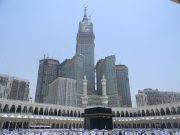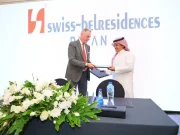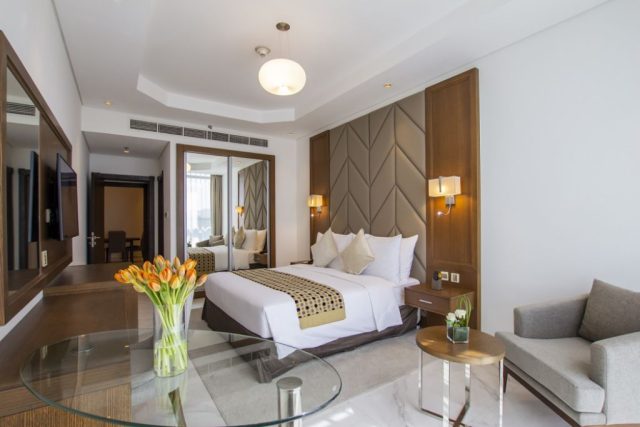According to the Q1 2023 Hotel Construction Pipeline Trend Report for the Middle East from Lodging Econometrics (LE), the hotel construction pipeline in the region increased to 581 projects/147,356 rooms, up 8% by projects and 6% by rooms year-over-year (YOY).
Hotel development counts in the Middle East continue to increase through the first quarter, largely due to the strong inflow of demand for lodging options in the region. The Middle East has become one the world’s fastest-growing tourism destinations – hosting major cultural, religious, and sporting events, which has helped propel demand and occupancy throughout the region. This trajectory of growth is expected to continue as developers are being motivated by the strong performance stats seen thus far in 2023. New project announcements in the Middle East rose in the first quarter to close at 51 projects/9,033 rooms. Construction starts also experienced an increase in Q1, to stand at 37 projects/11,844 rooms. These trends continue to show developer enthusiasm in the region.
At the close of the first quarter, there are 327 projects/93,217 rooms under construction, down just 1% by projects YOY and up 2% by rooms YOY. Projects scheduled to start construction in the next 12 months increased 33% by projects YOY to stand at 104 projects/24,483 rooms. Projects in early planning hit a record high, at Q1, with 150 projects/29,656 rooms, up 18% and 17% YOY, respectively.
Countries with the greatest number of projects in the construction pipeline in the Middle East at Q1 are Saudi Arabia with a record 260 projects/70,069 rooms and the United Arab Emirates (UAE) with 108 projects/28,973 rooms. Egypt follows with record totals of 92 projects and 22,894 rooms, then Qatar with 46 projects/10,921 rooms, and Oman with 30 projects/6,133 rooms. Dubai continues to lead the construction pipeline in the UAE with 68 projects/20,647 rooms.
The Provincial region continues to lead the Middle East with the most projects in the region’s construction pipeline with 101 projects/23,212 rooms, followed by Riyadh with record-high projects and room counts of 84 projects/16,756 rooms. Jeddah is next with 47 projects/10,395 rooms, Doha with 41 projects/10,037 rooms, and Cairo with 32 projects/6,782 rooms. Fifty-two percent of the projects and 46% of the rooms in the region’s total construction pipeline are located within these five cities.
In the first quarter, 58% of projects and 59% of the rooms in the region’s total construction pipeline belong to five franchise companies. Hilton Worldwide tops the list with a record 99 projects having 24,736 rooms. Next is Accor with 76 projects/19,750 rooms, and then Marriott International with 78 projects/23,232 rooms. InterContinental Hotels Group (IHG) follows with record project counts of 64 projects/14,833 rooms, then Radisson Hotel Group with 20 projects/3,941 rooms.
The largest brand in the pipeline for each of these companies are Hilton’s upscale Doubletree brand with 28 projects/6,152 rooms, Accor’s Novotel brand with 9 projects/2,346 rooms, Marriott’s Courtyard brand with 14 projects/3,735 rooms, IHG’s InterContinental with a record project count of 16 projects and 4,266 rooms, and Radisson’s Blu brand with 8 projects/1,475 rooms.
During the first quarter, the Middle East opened 8 new hotels accounting for 2,110 rooms. LE is forecasting a total of 133 new hotel projects/31,573 rooms to open in 2023 and another 123 hotels/30,430 rooms to open in 2024.
- U by Emaar Unveils New Brand Identity and Exclusive Member Benefits - September 17, 2024
- Dubai to Host Inaugural Aviation Future Week at the Museum of the Future - September 17, 2024
- Smart Cities: Middle East’s Vision for a Sustainable Future - September 10, 2024

































